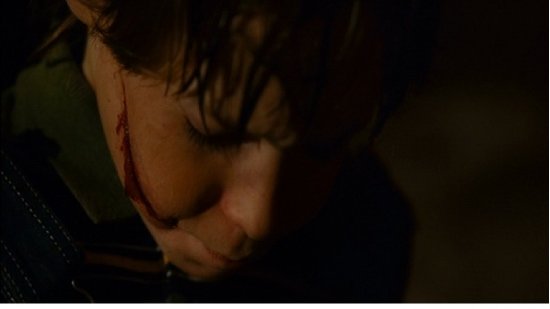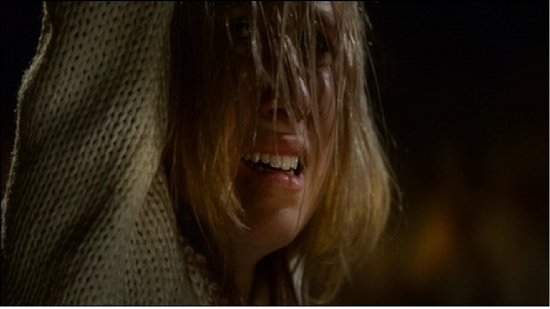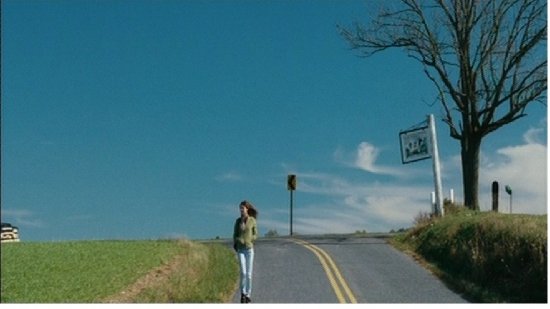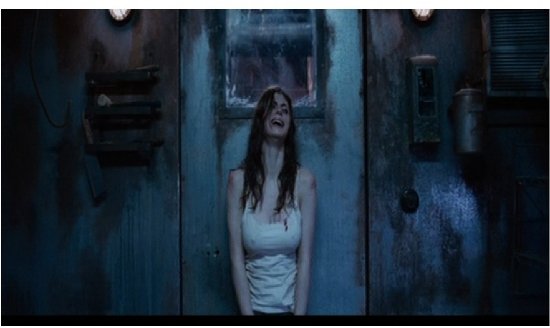Review for Bereavement
Bereavement
Director: Steven Mena
“ A child shouldn’t feel guilty about nothing.”
Film
In 2004, director Steven Mena made his debut with Malevolence, attracting some decent notices along the way for his above-average throwback. The likes of the guys at Dread Central gave extremely positive reviews to a work of horror fans who spent years struggling to get his vision on screen.
Two years ago, Mena put together Bereavement, a direct prequel to his initial foray into cinema. Although this may cause trepidation amongst those who have not seen, or heard of the first film : fear not. This reviewer was unfamiliar with Malevolence too, and more to the point, was able to approach this film as a standalone piece of horror filmmaking.
In Bereavement, Martin Bristol is a young boy snatched from his home, and forced to observe the atrocities committed by deranged hillbilly murderer, Graham Sutter. Sutter kidnaps and tortures young girls on his revolting, dilapidated premises. Martin suffers from an illness that prevents him from feeling pain , and Sutter treats him as an apprentice, teaching him his sordid ways. Meanwhile, Allison Miller moves into the neighbouring farm owned by her uncle (played by Michael Biehn). A detached youth from the big city, she may be the only one to save the boy….
Unquestionably, there is a bravery about Bereavement when it comes to the inclusion of a child as one of the focal points of the plot. The central notion that Martin suffers from the illness of course adds a unique element to the film and distinguishes it from the glut of modern horrors that essentially tell the same well-hackneyed tale.
This is a film that is very unpleasant, right from the outset, but not exploitative.
Finer details are picked up on without mercenarily being dwelled upon. An early scene in which his face is slashed by the protagonist is something that would have made censors squirm if it had occurred in a picture more gruelling in other aspects. Bereavement though, exhibits surprising restraint. Many of the atrocities are implied, rather than shown. More importantly, the most disturbing material surrounds the boy, and the horrors that he endures, in order to make him someone more attuned to the violence. Dunked in a bath of watery blood, or subjected to slashes of the wrist, the camera is unflinching in depicting his ordeal- which ironically, he does not feel physically.
Make no mistake however, several instances of violence are quite gruesome. A meat hook through a knee is believably nauseating and the climatic moments do introduce a couple instances of terrible bloodshed. But balancing things out, in another scene a murder is mainly effective simply because we hear the splatter of blood on the ground. Either way, it’s refreshing that Bereavement does not over indulge or bask in spilled claret, and it’s more effective for it. Equally, by not shying away from viscera at select moments, the film does not feel purposely watered down, and maintains an edge that holds the tension together.
Surprisingly though, it also approaches something close to tenderness at several points. Some nice rural photography helps the cause, as scenes in the vast, expansive fields look impressive at times. An argument could be made that Mena should have could several of these shots though. Bereavement runs at just over 100 minutes, and probably could have done with a slight trim to cut some of the flab. At least though, for the duration Sutter is a compelling villain, well performed by Brett Rickaby. Michael Biehn is also his reliably gruff but noble self throughout. His solid performance benefits the film immeasurably, especially as a handful of other turns are very wooden indeed. As a lead, Alexandra Daddario is sadly, merely adequate at best, but on the other hand, she’s also tremendously attractive. As one of the stars of the upcoming Texas Chainsaw 3D, expect to see more of her within the genre over the next year or two.
On a more serious note, Bereavement may be the victim of unfortunate timing, due to the tragic real life instances of child abduction/disappearances that seem to dominate news reports of recent times. Whilst this is understandable, it is also rather unfair on a film that is more than the sum of it’s parts, and definitely brings something to the genre. And truthfully, is there ever really a good time for such subject matter?
Mena’s film admittedly suffers a little from what is at the centre of it, a rather over familiar plot. Lacking surprises, this is not a storyline that is going to invoke great attention. Where Bereavement stands out, is in its refusal to adhere to horror film conventions. This doesn’t feel like it exists to thrill, or even offer a terrifying ride. It’s purpose is to get under the skin, and disturb in the same manner in which Jack Ketchum’s The Girl Next Door did. As the film progresses, it increasingly focuses on the psychology of the crazed Graham Sutter, and although the serial killer as a lead is nothing new, treading a similar ground as Henry remains brave and when achieved well, fresh. It’s especially unique because it’s very rare indeed for an entry in what is becoming a franchise, to stand alone and not simply plunder slasher film convention. Hopefully, if a third film does manifest, it does not simple descend into cliché and franchise mediocrity, because Bereavement is much better than that.
Extras
None available on the review copy.
Overall
Far from perfect, Bereavement is nonetheless, a very worthwhile, absorbing depiction of suffering that is head and shoulders above High Fliers silly promotional campaign (“there’s blood and guts aplenty”). The release is disappointing in the sense that it is bare bones, and one feels Mena would be a very interesting director to learn more from. Regardless, the film is very good indeed. Not a classic, but certainly a very impressive curio.





































Your Opinions and Comments
Be the first to post a comment!